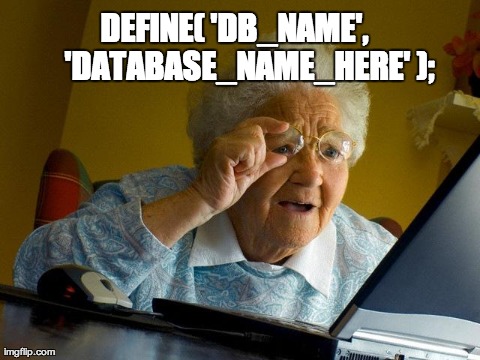
Is WooCommerce only for eCommerce?
Is WooCommerce an exclusive platform for eCommerce? Does its utility only span the retail industry? Or could you use WooCommerce for different applications? While these questions linger in our minds, it shows our curiosity towards understanding more about WooCommerce, its capabilities and scope.
According to studies by Builtwith(2021) and Datanyze(2021), misconceptions about WooCommerce being solely a platform for online retail activities are widespread. This misinterpretation has led many business owners to forego potential opportunities for using WooCommerce as an effective tool in multiple aspects of their business operations. Despite this prevalent misinformation, WooCommerce was actually built to be a versatile tool which can adapt to various business requirements. Indeed, the diversity of the plugins available in WooCommerce- as seen from surveys conducted in the USA, displays its flexibility and breadth of functionality.
In this article, You will learn more about the dynamic and flexible facets of WooCommerce. It will debunk the common myth of WooCommerce being only an eCommerce tool and shed light into its vast applications. Through various real-life cases and examples, we will explore how businesses have harnessed WooCommerce beyond simple eCommerce, using it in different departments like human resources, workflow management and even analytics.
We will guide you through the steps to diversify the usage of WooCommerce in your business and provide you recommendations on how to utilize the available plugins effectively. By the end of this article, your understanding about WooCommerce will become much broader, and it will transform from just an eCommerce platform to a multi-faceted tool that can significantly boost your business operations.

Definitions and Meanings: Understanding WooCommerce
Primarily, WooCommerce is an open-source plugin designed specifically for WordPress websites to transform them into efficient eCommerce platforms. However, it is not exclusively just for eCommerce. It extends its functionality beyond this, offering different types of solutions for business websites. Although ideally it serves as an eCommerce platform to manage online stores, at its core, it is a versatile tool that can be tailored to match business needs. You can use it to sell both physical and digital products, manage inventory and shipping, take secure payments and sort taxes automatically. Besides, it also has business extensions, such as bookings and memberships, which are used for non-eCommerce related solutions like appointments and other types of online reservations, reflecting its considerable flexibility.
WooCommerce Beyond Borders: Expanding its Scope Beyond eCommerce Industry
Demystifying WooCommerce’s Versatility
Contrary to popular belief, WooCommerce is not just for eCommerce. Of course, it has gained popularity as one of the most robust and versatile eCommerce platforms powering millions of online shops. But, there’s more to WooCommerce than the world of eCommerce. It is a flexible, open-source platform built on WordPress, which allows for multiple uses beyond just selling products. So, whether you’re a small startup or a well-established business wanting to launch a content-driven website, a portfolio, or even a membership site, WooCommerce could be your go-to.
For instance, businesses can use WooCommerce to create a membership style site. These types of sites can range from online learning platforms, sites with premium content, or even community-based forums where users need to register and pay a fee to access certain features or information. With WooCommerce’s subscription extension, setting up a membership site becomes very straightforward, making your WordPress website incredibly dynamic.
The Unconventional Uses of WooCommerce
The other unconventional uses of WooCommerce may come as a surprise to many. Those who are running consultation or appointment-based businesses can effectively make use of WooCommerce. It can be configured to book appointments or events thanks to various booking and appointment plugins available, turning your site into a fully functioning booking platform.
- Artists and freelancers can also utilize WooCommerce as a portfolio showcasing site. They can display their work samples or case studies, set up booking for their services, and even sell merch, all under the same roof.
- News or blog websites can use WooCommerce to sell sponsored posts or advertising spaces, turning their site traffic into a revenue source. They can also sell digital subscription plans, giving readers unlimited access to their content.
- Non-profit organizations can use WooCommerce to accept donations on their websites. Leveraging various payment gateway integrations, they can allow supporters from all over the world to contribute digitally.
Given its flexibility and extendability, WooCommerce can be tailored to fit almost any kind of business model, not just eCommerce. For those who think outside the box, finding new ways to leverage WooCommerce can prove fruitful. Even if your business model doesn’t fit into the traditional retail mold, don’t overlook WooCommerce. It’s built to cater to businesses of all kinds with its extensive features and functionality, helping you to seamlessly manage your online entities.
Shattering Stereotypes: The Diversified Applications of WooCommerce not Limited to eCommerce
Reconsidering the Scope
Is it accurate to claim that WooCommerce is solely a virtual shopping platform? As a matter of fact, it isn’t. WooCommerce, a popular WordPress plugin initially designed to facilitate online sales, has evolved significantly beyond its original intent. It has transformed into a dynamic solution capable of serving various other unique functions. The essential appeal of WooCommerce is its flexibility, allowing it to be a robust tool that can be customized for numerous applications beyond selling products or services on the internet.
Identifying the Issue
The popular perception of WooCommerce as merely an eCommerce tool poses a significant challenge. Many businesses and individuals miss out on the potential benefits they could reap because they’re unaware of WooCommerce’s extended capabilities. This limited understanding culminates in its suboptimal use, restraining WooCommerce’s functionality to just online selling and shopping, and overlooking its potential to serve as a comprehensive tool with manifold purposes.
Shattering the Limitations
With some creativity and out-of-box thinking, numerous real-world examples highlight WooCommerce’s utility beyond just eCommerce. Say, for instance, a company wants to manage event bookings or ticket sales. Customizing WooCommerce can seamlessly achieve this by enabling an option to make every ticket a ‘product’. Another instance might be of a career portal; by incorporating customized ‘product’ types, WooCommerce can facilitate the entire recruitment process, making each job application a ‘product’. Similarly, SaaS companies or developers looking to create a customizable API for their digital product can utilize WooCommerce to provide users with tailored options, again treating each customization as a unique ‘product’. All these examples go on to demonstrate how WooCommerce, when thoughtfully exploited, can be a versatile tool that extends far beyond its conventional eCommerce role.
Unveiling the Hidden Capacities: Can WooCommerce Transect the eCommerce Barrier?
Exploring the Uncharted Territories
Can WooCommerce really push the boundaries beyond its classic eCommerce functionality? It might be surprising for many that WooCommerce, primarily known for creating web-based markets, can actually serve much more than just eCommerce needs. This in-depth and feature-rich platform presents a fusion of flexibility and adaptability, enabling it to serve various other sectors. Analyzing the top transformative features of WooCommerce reveals its capabilities to function as an educational platform, event management tool, or even a booking system. Thus, we see WooCommerce transformation from a mere eCommerce tool to a comprehensive multipurpose platform.
Unmasking the Latent Challenges
However, as WooCommerce delivers more than just eCommerce functionalities, several fundamental issues often emerge. The most prevalent problem is that most users are uninformed about the breadth of achievable functionalities with the platform. As a result, they rarely explore, let alone utilize these. Moreover, without proper knowledge and guidance, the implementation of different features can become overwhelming even for seasoned users. Another hurdle is the misconception that WooCommerce is solely a sales platform due to its name and initial purpose, which tends to limit its utilization to only eCommerce solutions.
Concrete Measures for Holistic Usage
Nonetheless, various successful instances display WooCommerce as more than merely an online shop. For instance, a language learning platform utilized WooCommerce for its course selling purpose. Simultaneously, it served as an efficient platform for managing and monitoring learners’ progress. To take another example, WooCommerce has been utilized as a comprehensive event management tool, handling ticket sales, seat reservations, and even event schedules in a place. Similarly, several hotels and tourist agencies are now using WooCommerce for managing their booking systems integrating different types of payment gateways ranging from card payments to cryptocurrencies. These inspiring instances not only broaden our understanding of WooCommerce’s capacity but also allow us to envisage how it can be used beyond the traditional eCommerce norms, hence transforming the way we perceive and utilize this versatile platform.
Conclusion
Could we ponder a while and speculate if WooCommerce is just a mechanism for eCommerce or is it something more? Based on extensive research and exploration, it seems pretty evident that WooCommerce extends far beyond merely providing a platform for eCommerce. The versatility it provides makes it a multi-dimensional asset not only for selling products online but it serves as a highly customizable platform, ideal for various online businesses. Its integration abilities also make it a favorable choice to combine different operational aspects, making operations smoother for businesses.
Let us acknowledge and appreciate your continuous readership and support of this blog, enhancing its global reach with every single read. Our endeavor is to keep you constantly updated through our frequent blog posts. It is truly your unwavering support that keeps us going, instigating us to produce more unique topics that are simplifying your areas of interest. We can promise you that our upcoming blogs will be equally enlightening and engaging, broadening your horizons and helping transform your business methodologies for the better. Our endeavor remains to keep you on the front of modern innovation and recent revelations.
Finally, the anticipation of new releases is always invigorating, adding a sprinkle of curiosity to our ordinary mundane lives. We assure you, the wait will be worth it! New releases will not only be more intriguing but will also look forward to shedding light on more such mind-boggling concepts. These future blogs will fuel your fascination for e-business, and enlighten you with a plethora of practical insights and the intricacies of applying various digital resources to your venture. Exciting times lie ahead, as we journey into delving deeper into the realm of WooCommerce, eCommerce, and the digital world’s enigmas. Until then, keep supporting us and continue this amazing journey of knowledge and growth with us.
F.A.Q.
FAQ
What is the primary function of WooCommerce?
The primary function of WooCommerce is to facilitate eCommerce transactions on WordPress websites. It enables site owners to establish an online store and sell goods or services conveniently.
Can WooCommerce be used for non-eCommerce related functions?
While primarily used for eCommerce, WooCommerce can be adapted for other functions. For instance, it can be used to make booking or donation websites, given its high degree of customization.
What other features does WooCommerce offer outside of eCommerce?
In addition to eCommerce capabilities, WooCommerce offers features like detailed analytics, marketing tools, and SEO optimization. These tools can be useful for a variety of website types.
Is WooCommerce suitable for websites that don’t intend to sell products or services?
Even if a website doesn’t sell products or services, WooCommerce can still be beneficial. Its numerous customization options can be used to enhance website functionality and overall user experience.
If I primarily operate an informational or educational website, would WooCommerce be beneficial?
Yes, WooCommerce can be beneficial on informational or educational websites as it provides functionalities like booking or registration for webinars, workshops, and events. It also supports donations, making it suitable for charity or nonprofit websites.